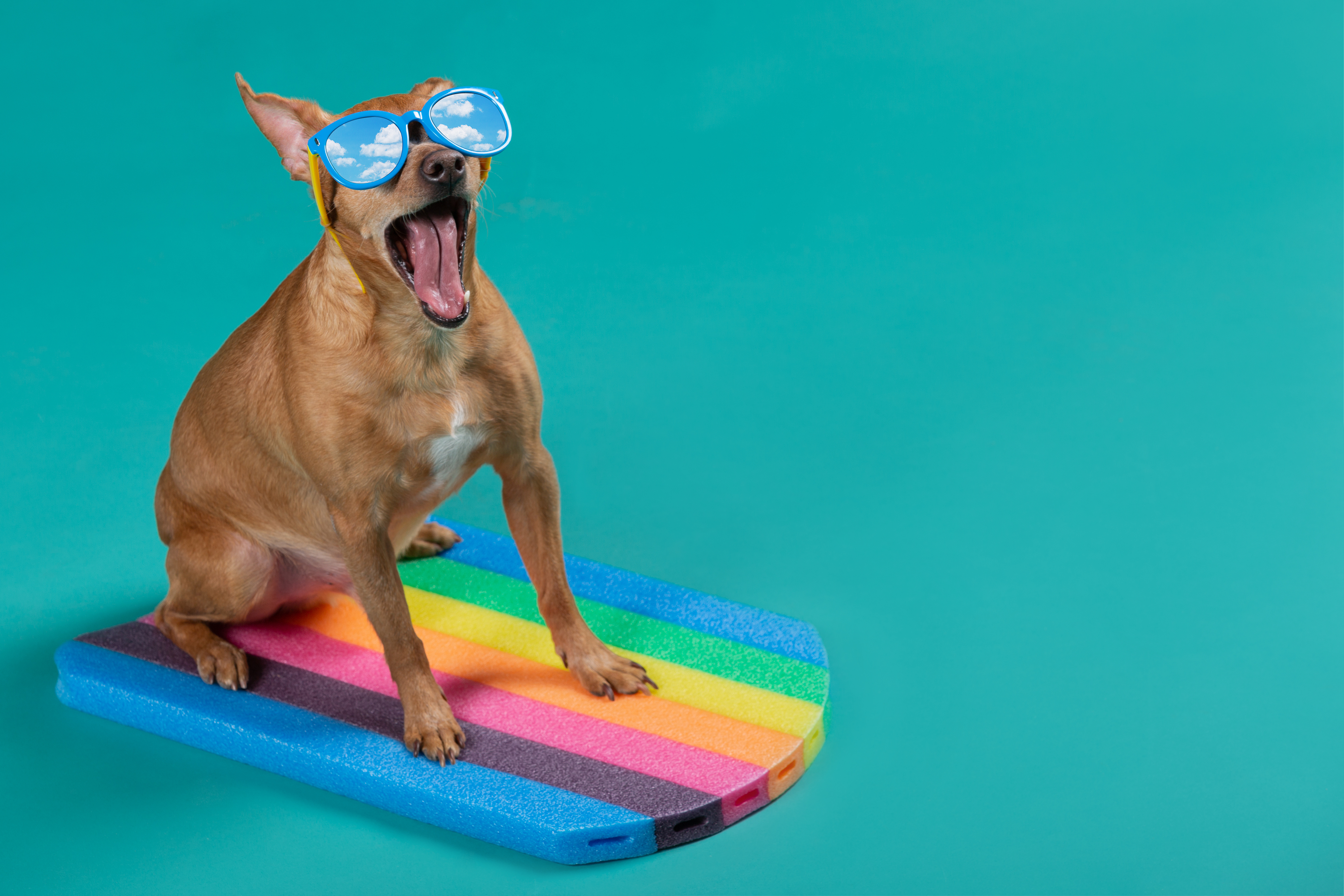Summer strolls & staying safe

Keep your pets safe this summer
Aside from companionship, love and never being able to go to the toilet alone, one of the best parts of having a dog is the summer walks you get to enjoy together. The lighter, longer days and warmer air make dog walking a true pleasure and provide many health benefits for both pooch and parent.
However, summer walks can pose a few additional dangers than normal, so we wanted to quickly shine some light on these to help owners and pups stay safe this, and every, summer.

Heat
We recently covered overheating in this blog post, but as such a prominent dog danger in warmer months, we wanted to reiterate it in this post too. Walking dogs in the summer should always be according to the daily temperature. What temperatures are too hot for dog walks? Generally speaking, 20°C and below is safe for UK-acclimatised dogs. Temperature safety at numbers greater than this depends on the breed and health of the individual dog. On days where temperatures exceed around 24°C, consider sticking to early morning or evening walks, when the temperature is cooler. Always do the ‘tarmac test’, by checking how hot the floor is with your own foot / hand to ensure pups’ paws and pads don’t get burnt, and always have cool water and shade available to your dog before and after their walks.
Don’t be afraid not to walk your dog if the temperature is too hot. Skipping some daily exercise is always preferable to heat exhaustion, and pups can be mental stimulated and exercised at home in the cool.
Fleas
The natural life cycle of most pests means that they hatch and are most active over summer. Combine that with increased socialisation of pets during warmer months (i.e. on dog walks) and it’s clear why flea infestations can be a concern for many pet owners.
Fleas are parasites that suck blood from the host’s skin, and they lay many eggs and breed very quickly, which is how serious infestations occur. They can spread to different surfaces and hosts in the house, so it’s best to deal with a pet with fleas as soon as possible. Common symptoms of fleas involve excessive scratching, biting, bald patches, and soreness. You may even see fleas jumping or spot fleas and their eggs in the coat. We recommend Anicura Insect Repellent to keep pesky fleas at bay, but you can also speak to your vet about different flea prevention / treatment options.
Ticks
Ticks are blood-sucking parasites that can easily fall onto pet’s coats in woodland or grassland areas. Pets (and humans!) are more likely to get a tick in the summer months. Tick bites can transmit diseases, including a serious bacterial infection called Lyme disease. Considering this, it is hugely important that ticks are found and removed as safely as soon as possible.
Giving your dog (and you) a quick once-over after every walk is the best way to find ticks, and they can be removed using a tick remover (pop to your local pet shop to buy one). When removing a tick, be careful to ensure you don't squeeze the tick's body or leave the head in. Again, we recommend Anicura Insect Repellent to prevent tick bites and infections, but you can also speak to your vet about different tick prevention / treatment options.
Adders
Adders are the UK’s only native poisonous snakes, which emerge in spring after winter hibernation. They are found in a wide range of habitats, but enjoy sunny woodland areas. Inquisitive dogs (and children for that matter) who wonder off-path can easily come into contact with an adder who may bite in self-defence. Common bite areas include the face, muzzle and paws. If you notice a sudden change in your dog’s behaviour, which may include swelling, bruising, drooling, lameness, rapid beathing, vomiting or a visible puncture sight, please contact your vet immediately for medical treatment.
Dog theft
Dog thefts increase in the summer simply because dogs are more accessible from public walks and private gardens. Always be vigilant on dog walks, especially if you are in a quiet or secluded area. Get your dog microchipped and keep them within eyesight at all times. If you ever notice any suspicious or alarming behaviour, please report this to 101.





